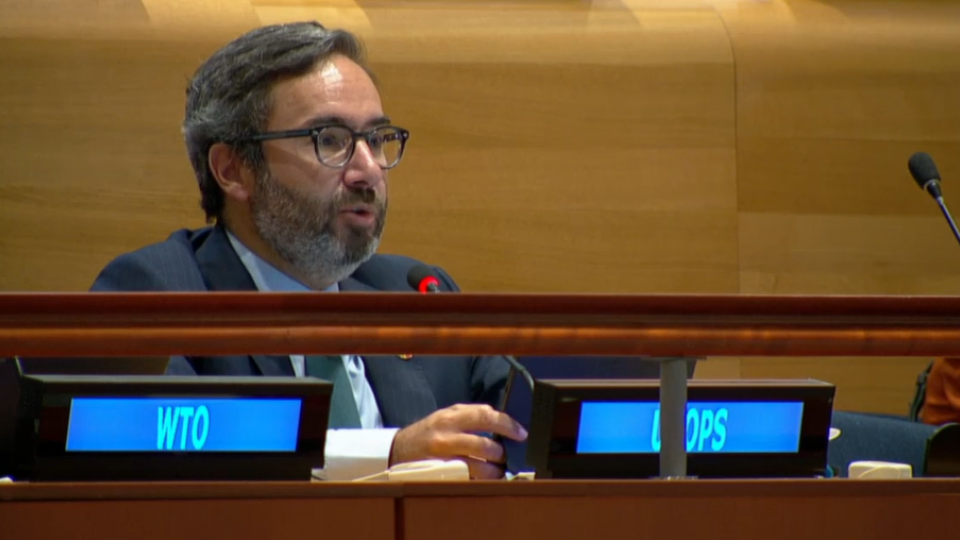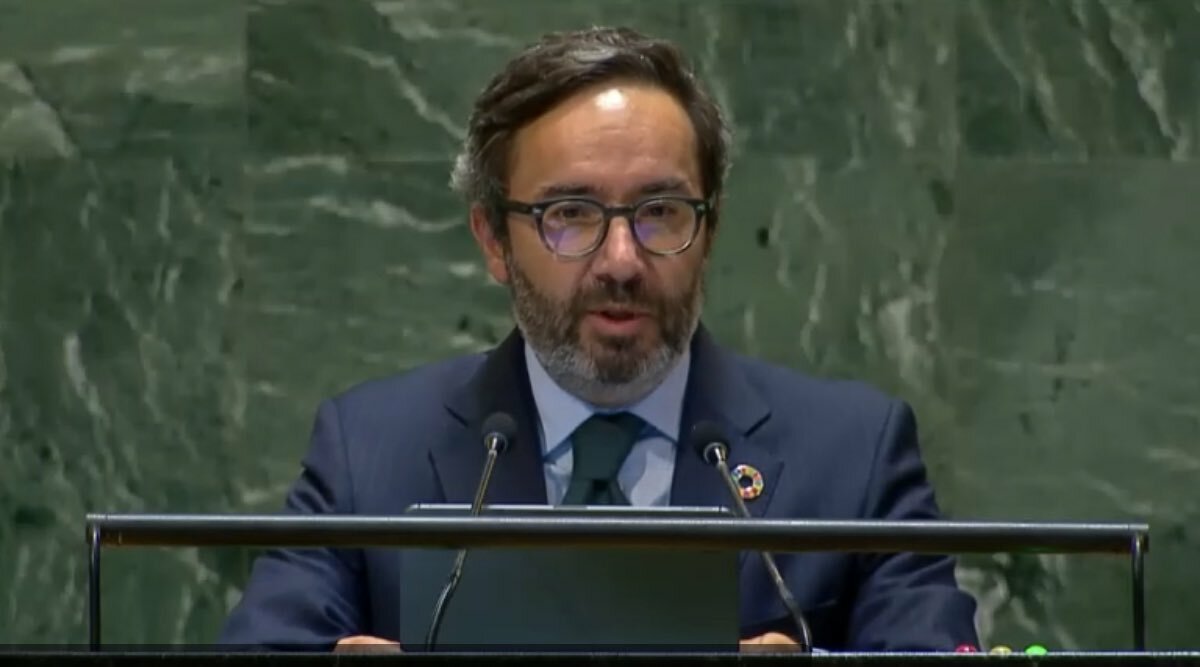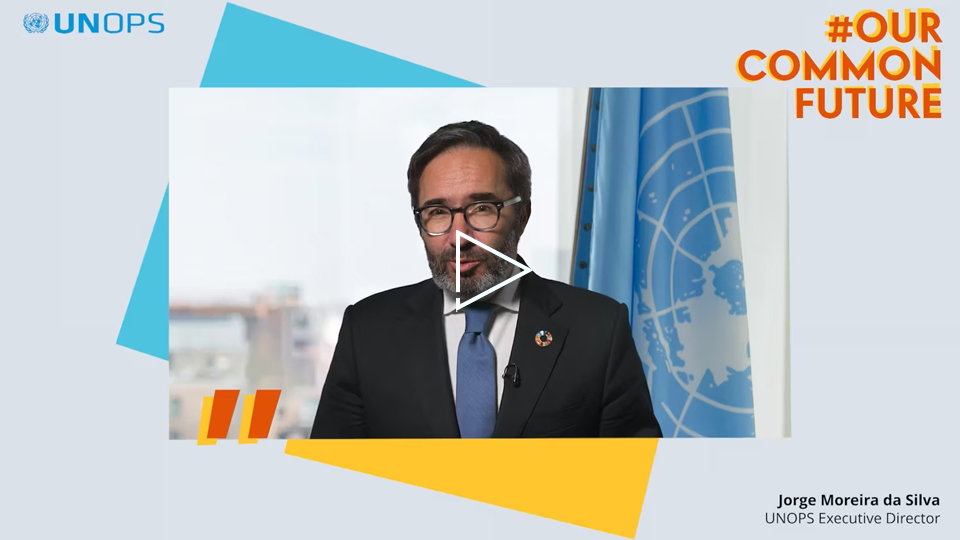The United Nations Office for Project Services (UNOPS)
Statement by UNOPS Executive Director to the Summit of the Future Interactive Dialogue 1
Statement by Jorge Moreira da Silva, UN Under-Secretary-General and UNOPS Executive Director to the Summit of the Future Interactive Dialogue 1: Transforming global governance and turbocharging the implementation of the 2030 Agenda for Sustainable Development - 22 September 2024.
[Check against delivery]
Mr President, Excellencies,
To deliver on the 2030 Agenda, we clearly need reformed global financial structures that can support developing countries, as they deliver for their populations, in the face of rising conflicts, the climate crisis, increasing inequalities, inflation and a debt crisis.
Difficulties in accessing adequate finance are clearly a barrier to speeding up climate action and sustainable development.
But to deliver on the promise of leaving no one behind, we also need reforms to our broader development governance structures. This goes beyond finance.
To quote the Secretary-General: “We can’t create a future fit for our grandchildren with systems built for our grandparents.”
We all have a responsibility to make our systems more inclusive, accountable and transparent, to increase representation and decision-making at all levels from developing countries, to decentralize, and to shift the focus away from a donor-recipient focus, to true partnerships. We need to collaborate better to strengthen our global public goods.
Our focus on finance and policy gaps addressing the implementation of climate goals and the SDGs is important. But there is also an implementation gap - that requires strong commitment. To turn development and climate ambitions into actions that improve the lives of millions, we need to redouble our efforts to provide technical assistance and support on implementation, where these are required.
The development landscape has changed in the last two decades: new sources of finance, new actors, new strategies, new frameworks, new norms and new measurement tools.
Now it is time not only to mobilize more resources and to align them with the Sustainable Development Goals and climate goals but also to find new institutional arrangements that overcome fragmentation and inconsistency and can simultaneously:
- Bring together all sources of finance (official development assistance (ODA), south-south, triangular co-operation, remittances, foreign direct investment (FDI), domestic resource mobilization, blended finance, impact investing, philanthropic finance, debt) and all public, private and civil society actors; and
- Address in a holistic manner all key elements of the development co-operation architecture: from decision-making and rule-setting, to accountability, enforcement and learning.
I commend the colleagues here for the efforts already made to drive these reforms - but we need to do more.
UNOPS is committed to supporting these efforts, particularly through our focus on implementation and operations.












